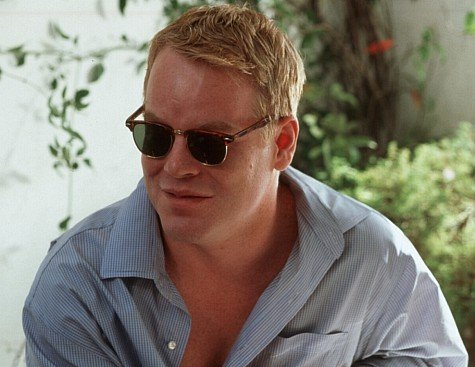Double Feature: March 2014
 Something About Philip
Something About Philip
Watching the right pair of movies back-to-back can illuminate wildly different details, create a whole new viewing experience and, just maybe, BLOW your MIND. Plus, it’s fun! Here’s your monthly guide:
Philip Seymour Hoffman, a ferociously vulnerable and inventive actor, died last month with a needle in his arm. We know that already. We have the intoxicating luxury of ultimate knowledge, and so, seemingly, we can take his life and box it up and label it.
Of course, he had no such luxury. Obviously, as someone who was living as a sober, recovering addict for well over twenty years, he probably had fears of an addict’s death. But, even though the fates had in store for him a lonely apartment with heroin as his only company, Hoffman certainly did not live his life as though that were all he had to look forward to.
The father of three young children, he was constantly promoting with profound enthusiasm his projects, the craft of acting itself and the honor of an intense work ethic. Since his first splash in Scent of a Woman (1992), he averaged two to four movies almost every single year – in fact, he’s got three in the can for 2014. He directed and performed on stages from Chicago to London, while also acting as Co-Artistic Director of New York’s electrifying LAByrinth Theater Company.
Was it selfish to leave all of this behind? Did he waste his life? “I cannot accurately convey to you,” explains the brilliant social comedian Russell Brand, “the efficiency of heroin in neutralizing pain.” This absolutely is not meant to excuse Hoffman’s tragic decisions, but the words should hopefully be potent enough to inspire the humble reflection that we do not know what he was going through, for the simple reason that we were not him. Life is mind-boggling and gargantuan; it cannot be defined by one event, it does not fit into a box.
First up:
Hard Eight (101 min)
Dir. Paul Thomas Anderson, 1996
Availability: DVD, Netflix Streaming, Amazon Instant
“There’s that guy again!” was the familiar reaction to his face in the late ’90s. He specialized in small but dynamic roles: A loathsome social elitist in The Talented Mr. Ripley, who single-handedly amped-up the nauseous tension as the first character to see through Ripley’s game. As the sleepily unflappable, relentlessly uncool rock journalist, Lester Bangs, who crashes down perspective on his impressionable protégé in Almost Famous. A perverted prank caller in Happiness; a snobbishly flustered personal assistant in The Big Lebowski; a caring nurse desperate to help a dying patient in Magnolia; and a sad, smitten, self-hating porno boom operator in Boogie Nights.
And yet, today I’ll take the opportunity to direct you to one of his briefest roles – a 6-minute appearance in Paul Thomas Anderson‘s little-seen debut, Hard Eight. Philip Baker Hall’s wise gambler takes John C. Reilly‘s lovable dimwit from the curb, and instead of giving him a fish, as the saying goes, he teaches him to catch fish on his own. Of course, altruism, especially in the grimy world of casinos, is filled with dangerous complications.
About half way through the movie, in a crucial scene that has far more to do with piercing a character’s soul than plot, Hoffman’s young jerk appears at a craps table to challenge Hall’s icily calm “old man”. At first you might think, “Why was that asshole in the movie?” But Hoffman controls the moments with a wildly timorous bravado that shrouds the scene in mystery and pathos.
Next:
Capote (114 min)
Dir. Bennett Miller, 2005
Availability: Blu-ray/DVD
Hoffman went on to wrestle much larger roles but never became a true leading man. One of his most jaw-dropping performances, as a Scientology-like cult leader in The Master, was originally conceived as the primary protagonist, but the deferential actor himself offered the idea that the story should focus instead on Joaquin Phoenix’s shell-shocked WWII vet.
And so, his turn as the wickedly sharp author Truman Capote will likely go down as his most iconic role. Capote the Movie can barely keep up with Capote the Performance because PSH is so deeply immersed and nimble in the effete mannerisms and contradictory behavior of this legend – reveling in cold wit before cracking under anguished empathy for a murderous criminal.
Empathy is a key word to describe Hoffman’s career. It wasn’t just that he was able to embody so convincingly the lowest of the low, it was that he was able to do it without judgment, giving us a powerful glimpse into lives we would prefer to box up and label.
– Rob Fagin
Category: Columns, Double Feature, Monthly











